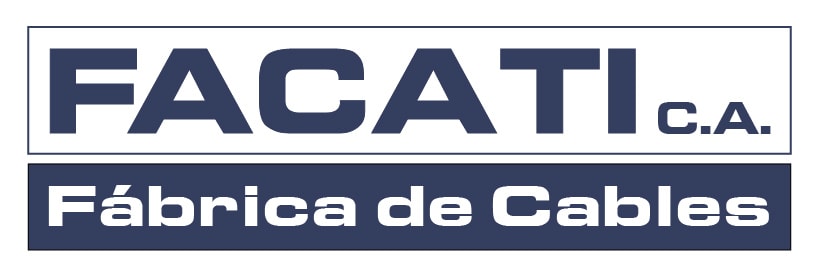Unleashing the Potential:
How Electrical Conductors are Revolutionizing Energy Distribution in Venezuela
 Image Source: pexels
Image Source: pexels
Introduction to electrical conductors and their importance in energy distribution
In the ever-evolving landscape of energy distribution, electrical conductors play a pivotal role in ensuring the smooth flow of electricity to meet the growing needs of consumers. These conductors, which include cables, electrical wires, and power cables, form the backbone of the power grid, facilitating the efficient and reliable transmission of electrical energy. In the case of Venezuela, a country grappling with significant energy challenges, the use of advanced electrical conductors has the potential to revolutionize its energy distribution system and pave the way for a brighter future.
Understanding the different types of electrical conductors – cables, electrical wires, power cables
Before delving into the transformative potential of electrical conductors in Venezuela, it is crucial to understand the different types of conductors utilized in energy distribution systems. Cables, one of the most commonly recognized electrical conductors, comprise multiple insulated wires bundled together. These cables provide a safe and efficient means of transmitting electricity over long distances. On the other hand, electrical wires are single conductors typically used for shorter distances within buildings or devices. Lastly, power cables are heavy-duty conductors that transmit high-voltage electricity, often used in industrial and commercial applications. Each type of conductor serves a specific purpose in the energy distribution network, ensuring seamless power flow from generation sources to end-users.
The role of electrical conductors in revolutionizing energy distribution in Venezuela
Venezuela, blessed with abundant natural resources, has long relied on its oil reserves to meet its energy demands. However, with the changing dynamics of the global energy landscape and the need for sustainable alternatives, Venezuela is now focusing on diversifying its energy mix. In this pursuit, electrical conductors play a critical role. Electrical conductors facilitate the integration of clean energy into the national grid by enabling the efficient transmission of electricity from renewable sources such as wind and solar farms. This integration reduces reliance on fossil fuels and reduces greenhouse gas emissions. Additionally, using advanced electrical conductors enhances grid stability and reliability, mitigating the risk of blackouts and ensuring a consistent electricity supply to industries, businesses,and households nationwide.
Benefits of using advanced electrical conductors in energy distribution systems
The adoption of advanced electrical conductors in energy distribution systems offers a plethora of benefits for Venezuela. Firstly, these conductors have higher conductivity, which means less energy loss during transmission. This increased efficiency translates into cost savings for energy producers and consumers, making electricity more affordable. Moreover, advanced electrical conductors are engineered to withstand extreme weather conditions, making them more resilient to hurricanes and other natural disasters that often threaten Venezuela’s energy infrastructure. This resilience ensures the uninterrupted supply of electricity, even in challenging circumstances. Furthermore, these conductors have a longer lifespan and require minimal maintenance, reducing operational costs and enhancing the overall reliability of the energy distribution network. By leveraging the advantages of advanced electrical conductors, Venezuela can achieve a more sustainable and reliable energy distribution system.
Challenges faced in implementing new electrical conductors in Venezuela
While the potential benefits of implementing new electrical conductors in Venezuela are substantial, several challenges must be addressed. One of the significant hurdles is the need for substantial investment in upgrading the existing energy infrastructure to accommodate these advanced conductors. This requires a coordinated effort between the government, energy authorities, and private sector stakeholders to secure the necessary funding and resources. Additionally, technical challenges may be involved in integrating the new conductors into the existing grid, as compatibility issues and system upgrades might be required. Lastly, ensuring the availability of a skilled workforce trained in installing and maintaining these advanced conductors is crucial. Overcoming these challenges will be instrumental in maximizing the potential of electrical conductors in transforming the energy distribution landscape in Venezuela.
Case studies highlighting the successful use of electrical conductors in energy distribution projects
To illustrate the transformative impact of electrical conductors in energy distribution, let us explore a few case studies from around the world. In the United States, deploying high-voltage power cables in offshore wind farms has enabled the efficient transmission of clean energy generated in remote locations to the mainland. This has facilitated the growth of the renewable energy sector and reduced dependency on traditional fossil fuel-based power generation. In India, implementing innovative grid technologies, which rely on advanced electrical conductors, has enhanced grid stability and efficiency. This has improved energy access, reduced power outages, and enhanced utility revenue collection. These case studies demonstrate the immense potential of electrical conductors in revolutionizing energy distribution across different regions, and their applicability in the Venezuelan context is promising.
Prospects and advancements in electrical conductor technology
The future of electrical conductor technology holds tremendous promise for Venezuela. Ongoing research and development efforts are focused on enhancing the conductivity of conductors, reducing energy losses during transmission, and increasing their load-carrying capacity. Additionally, advancements in insulation materials are improving the durability and resilience of electrical conductors, ensuring their longevity even in harsh environments. Furthermore, integrating smart technologies into electrical conductors enables real-time monitoring and control, optimizing the performance of the energy distribution system. As Venezuela continues to embrace renewable energy sources and modernize its grid infrastructure, the advancements in electrical conductor technology will play a vital role in shaping the future of energy distribution in the country.
How to choose the proper electrical conductors for your energy distribution needs
Selecting the right electrical conductors for energy distribution requires considering various factors carefully. Firstly, the conductor’s ampacity, which refers to its current-carrying capacity, should align with the anticipated load requirements. Secondly, the conductor’s insulation material must suit the specific environmental conditions it will be exposed to. For example, conductors used in coastal areas must resist corrosion from saltwater exposure. Additionally, the conductor’s mechanical strength, flexibility, and fire resistance should be evaluated to ensure optimal performance and safety. Consulting with experienced engineers and industry experts can help make informed decisions and select the most appropriate electrical conductors for specific energy distribution projects in Venezuela.
Top manufacturers and suppliers of electrical conductors in Venezuela
In Venezuela, several reputable manufacturers and suppliers cater to the demand for electrical conductors. Some of the top companies in this sector include FACATI Cables, Cables de Venezuela, and Coninca. These manufacturers offer various electrical conductors tailored to different applications and requirements. Their products adhere to international standards and undergo rigorous quality testing to ensure reliability and performance. When embarking on energy distribution projects in Venezuela, engaging with these trusted manufacturers and suppliers is advisable to access high-quality electrical conductors that meet the industry’s stringent requirements.
Conclusion: The potential of electrical conductors in transforming energy distribution in Venezuela
As Venezuela seeks to overcome its energy challenges and embrace a sustainable future, the role of electrical conductors in revolutionizing energy distribution cannot be overstated. With their ability to enhance efficiency, reliability, and resilience, advanced electrical conductors can potentially transform the energy landscape in Venezuela. Adopting these conductors facilitates the integration of clean energy sources and ensures a consistent electricity supply to power industries, businesses, and homes nationwide. While challenges exist, concerted efforts and strategic investments can pave the way for Venezuela’s energy distribution system’s brighter and more sustainable future. By unleashing the potential of electrical conductors, Venezuela can create a resilient and efficient power grid that meets the needs of its citizens and drives economic growth.
CTA: For more information on how electrical conductors can transform energy distribution and to explore the range of advanced conductors available, don’t hesitate to contact us at Facati – Cable factory or visit our website, facati.net. Together, let us build a brighter future powered by innovation and sustainability.

